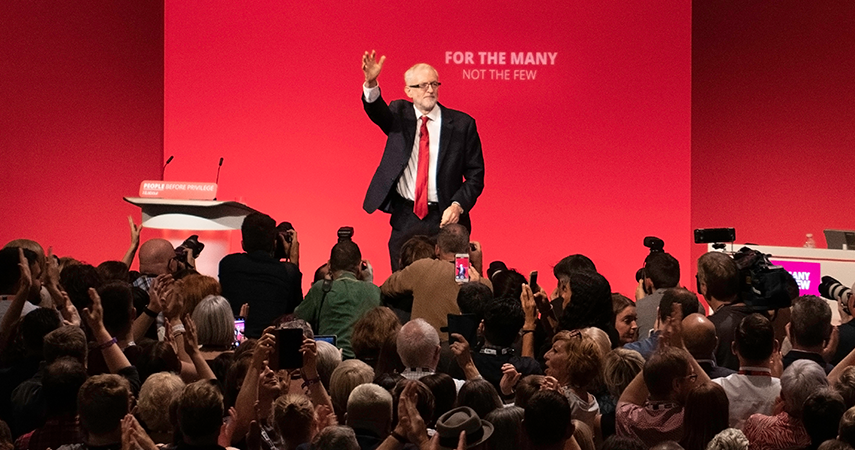Labour pledges free full-fibre broadband for all

Labour has pledged to give every home and business in the UK full-fibre broadband by 2030 if elected
Speaking to the BBC, shadow chancellor John McDonnell said: “Apart from some parts of London, and some of our major cities, everywhere I go, they’re saying ‘Oh, we’ve either not got broadband at the speeds that we need, it’s holding our economy back.’
“The [Conservative] government has come forward with a £5bn investment but actually it’s nowhere near enough. So we’re saying it’s going to cost about £20bn, we’ll put the extra £15bn in.”
As part of its plans, the Labour Party would look to part re-nationalise BT in order to deliver on the promise, with taxation on internet giants like Google and Amazon making up the shortfall.
McDonnell said the roll-out would begin in the “more difficult to reach areas first” before working their way through smaller towns and cities to larger, better-served areas.
With more and more people now using services demanding large amounts of data and significantly higher speeds, the UK certainly needs better connectivity. In terms of download speed alone, the UK lags woefully behind the rest of the world.

Research led by cable.co.uk found that the UK places 34th out of 207 countries for average download speed, behind the likes of Portugal, France and Belgium, and perhaps most surprisingly of all, Madagascar.
There are many challenges ahead in implementing full-fibre broadband, with infrastructure and affordability standing in the way.
Labour’s pledge to offer free full-fibre to homes and businesses by 2030 is one of a number of promises made by leader Jeremy Corbyn in the run-up to the general election, but is it feasible, and is it the only way the UK can be better connected?
READ MORE: The Challenges Facing 5G
Evan Dixon, Managing Director of Viasat Europe, said: “It’s hard to argue that broadband isn’t an essential utility. Increasingly, it is becoming impossible to fully participate in society without a fast broadband connection, and a lack of connectivity is still holding back many communities. Coupled with Johnson’s enthusiasm for fibre, this announcement shows that both parties see this as a major issue for the nation.”
However, Dixon does express worry over the political parties’ fixation on full-fibre, commenting that there are multiple technologies available now which could play a part in the roadmap towards full-scale connectivity, one of those being satellite.
“Regardless of whether broadband is subsidised or left to the free market, a true national broadband service needs to reach every inch of the country,” he said.
“Any true national broadband program needs to use multiple technologies – from fibre to 5G to satellite – to give everyone from consumers to emergency services the connectivity they need, when they need it.
“Not only is connectivity essential for a high-tech economy, but supporting the connectivity itself – including investment in faster fibre and satellite technologies – will boost the UK and provide capabilities that can be used across Government.”